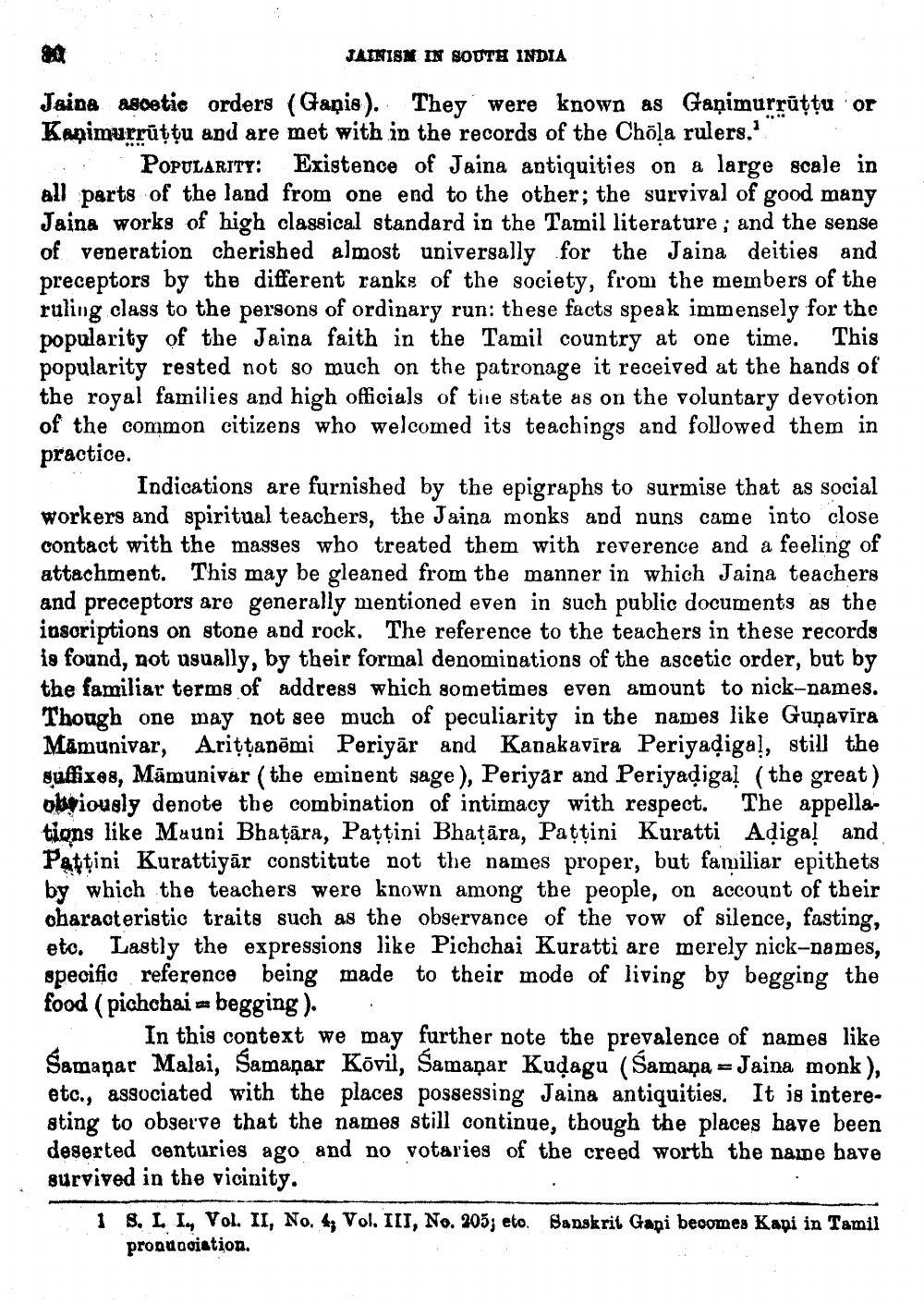________________
90
Jaina ascetic orders (Gapis). They were known as Ganimurrūṭṭu or Kanimurruṭṭu and are met with in the records of the Chōla rulers.'
JAINISM IN SOUTH INDIA
POPULARITY: Existence of Jaina antiquities on a large scale in all parts of the land from one end to the other; the survival of good many Jaina works of high classical standard in the Tamil literature; and the sense of veneration cherished almost universally for the Jaina deities and preceptors by the different ranks of the society, from the members of the ruling class to the persons of ordinary run: these facts speak immensely for the popularity of the Jaina faith in the Tamil country at one time. This popularity rested not so much on the patronage it received at the hands of the royal families and high officials of the state as on the voluntary devotion of the common citizens who welcomed its teachings and followed them in practice.
Indications are furnished by the epigraphs to surmise that as social workers and spiritual teachers, the Jaina monks and nuns came into close contact with the masses who treated them with reverence and a feeling of attachment. This may be gleaned from the manner in which Jaina teachers and preceptors are generally mentioned even in such public documents as the inscriptions on stone and rock. The reference to the teachers in these records is found, not usually, by their formal denominations of the ascetic order, but by the familiar terms of address which sometimes even amount to nick-names. Though one may not see much of peculiarity in the names like Guņavira Mamunivar, Ariṭṭanēmi Periyar and Kanakavīra Periyaḍigal, still the suffixes, Māmunivar (the eminent sage), Periyar and Periyaḍigal (the great) obviously denote the combination of intimacy with respect. The appellations like Mauni Bhaṭāra, Paṭṭini Bhaṭāra, Paṭṭini Kuratti Adigal and Pattini Kurattiyar constitute not the names proper, but familiar epithets by which the teachers were known among the people, on account of their characteristic traits such as the observance of the vow of silence, fasting, etc. Lastly the expressions like Pichchai Kuratti are merely nick-names, specific reference being made to their mode of living by begging the food (pichchai begging).
In this context we may further note the prevalence of names like Samanar Malai, Samanar Kovil, Samanar Kuḍagu (Samaņa = Jaina monk), etc., associated with the places possessing Jaina antiquities. It is interesting to observe that the names still continue, though the places have been deserted centuries ago and no votaries of the creed worth the name have survived in the vicinity.
1 S. LI, Vol. II, No. 4 Vol. III, No. 205; etc. Sanskrit Gapi becomes Kapi in Tamil pronunciation.




